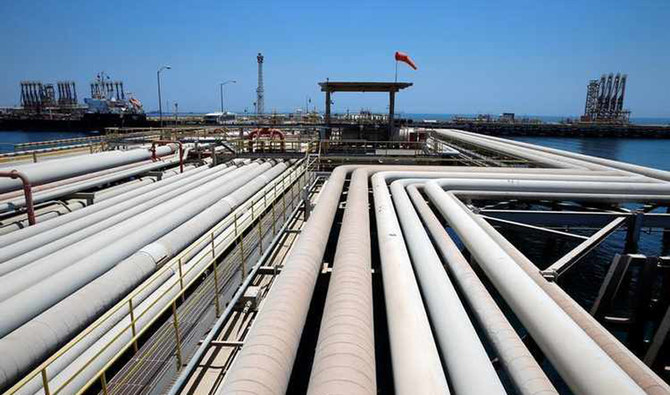ISLAMABAD: Major Pakistani political parties on Tuesday condemned an attack on two Saudi oil pumping stations by bomb-carrying drones, just days after four tankers were attacked at anchor off the UAE coast, saying the enemies of Saudi Arabia were tantamount to being the enemies of Pakistan.
The energy minister of the world’s largest oil exporter said the attack caused a fire, now contained, and minor damage at one pump station, but did not disrupt oil output or exports of crude and petroleum products.
Saudi Aramco later confirmed the attack in a statement, stating that it had “responded to a fire at East West Pipeline Pump station 8 which was caused by a sabotage incident using armed drones which targeted pump stations 8 and 9.”
Federal minister and Pakistan Tehreek-e-Insaf leader Faisal Vawda condemned the attack and said Pakistan, itself a major victim of terrorism, would stand by the Kingdom.
"This is sheer act of terrorism which should be strongly condemned by the world community," he said. "We have strong bonds with Saudi Arabia and have always been on its side whenever terrorists have tried to destabilize it."
“Attacking Saudi Arabia is like attacking Pakistan,” opposition Pakistan Peoples Party leader Senator Sehar Kamran told Arab News. “Saudi Aramco recently announced it would establish a $10 bn oil refinery in Pakistan. This is a huge investment. Attacking Aramco is not only an attack on Saudi Arabia’s interests but also the interests of Pakistan.”
“Pakistan stands with the Saudi Arabia as per our commitment that Pakistan will always stand by the kingdom,” she said, calling on Muslim states united agains forces that wanted to harm Saudi Arabia.
Pakistan Muslim League-Nawaz (PMLN) leader Senator Mushahidullah Khan called for an investigation into the attack.
“Saudi Aramco is investing in Pakistan. Some forces don’t want the region to prosper,” he said, calling it part of a greater game against the development and prosperity of the region.
“These attacks prove again that it is important for us to face terrorist entities, including the Houthi militias in Yemen that are backed by Iran,” Saudi Minister of Energy Khalid A. Al-Falih said in comments to the media.
A Saudi-led coalition has been battling the Houthis militia for four years in Yemen to try to restore the internationally recognised government.
Pakistan’s Jamaat-e-Islami party’s secretary foreign affairs, Abdul Ghaffar Aziz, said Houthi rebels in Yemen had already done serious damage to the region and its people by revolting against an elected government.
“They had attacked oil tankers a few days ago,” Aziz said. “Now this attack is like playing with fire as such attacks can ignite a dangerous war in the region.”




















